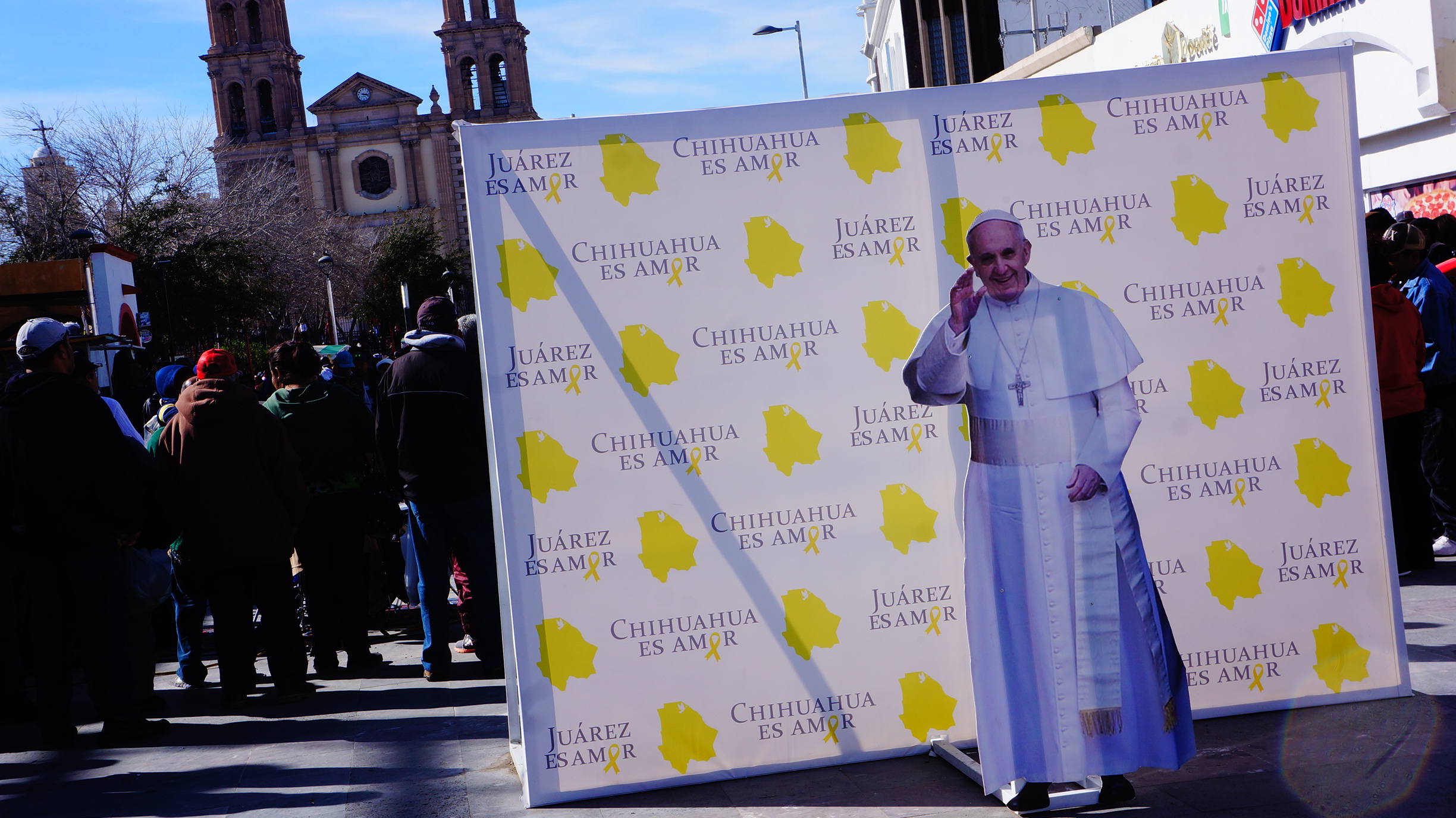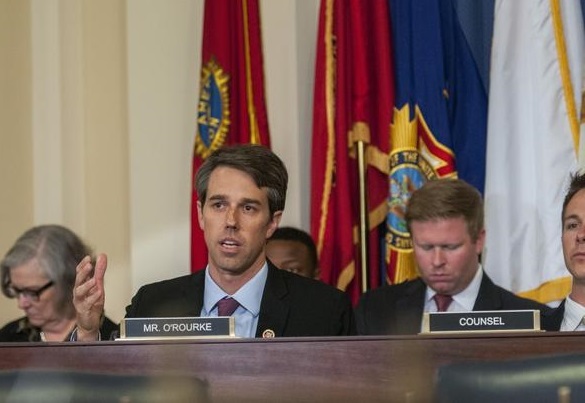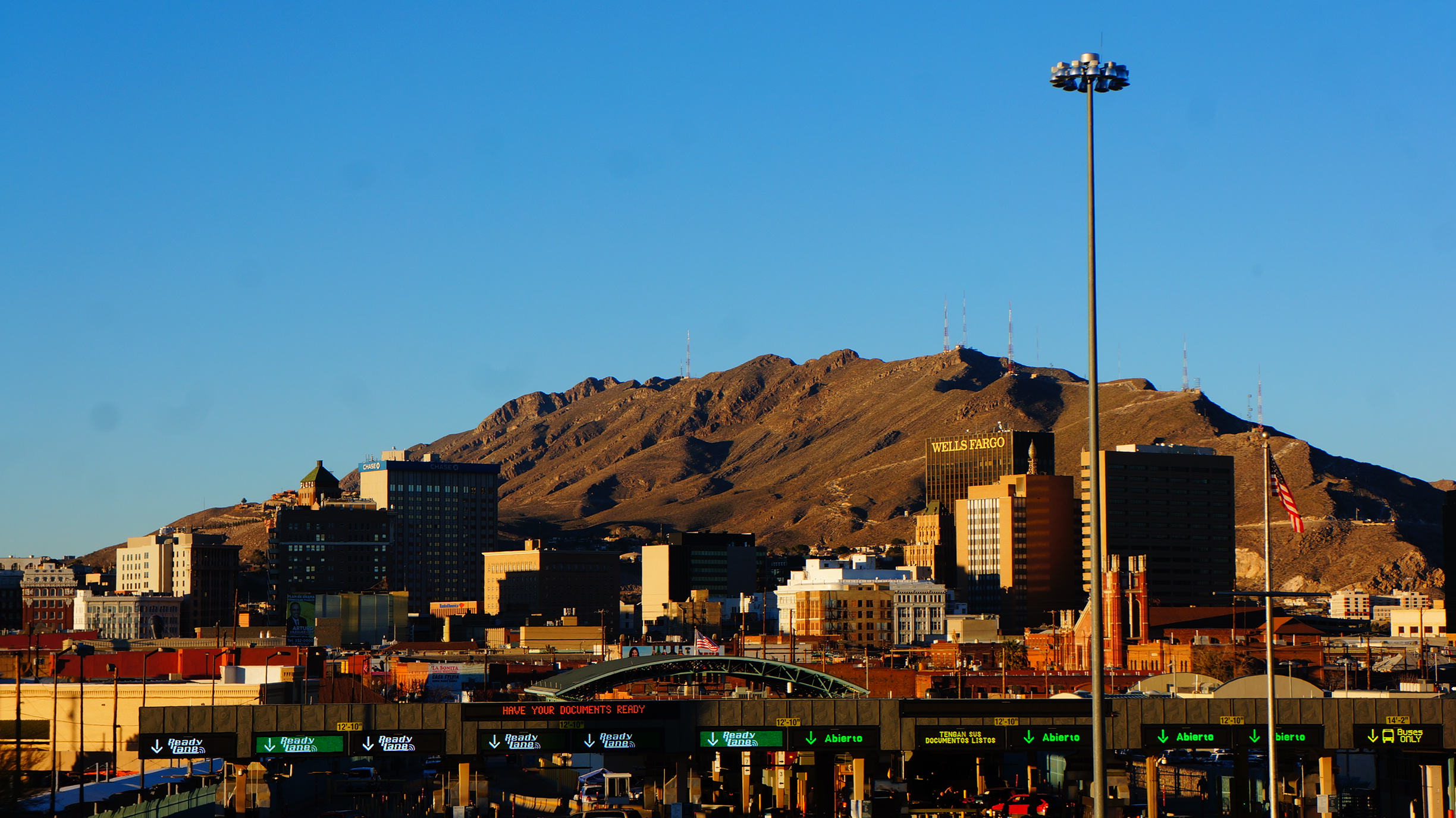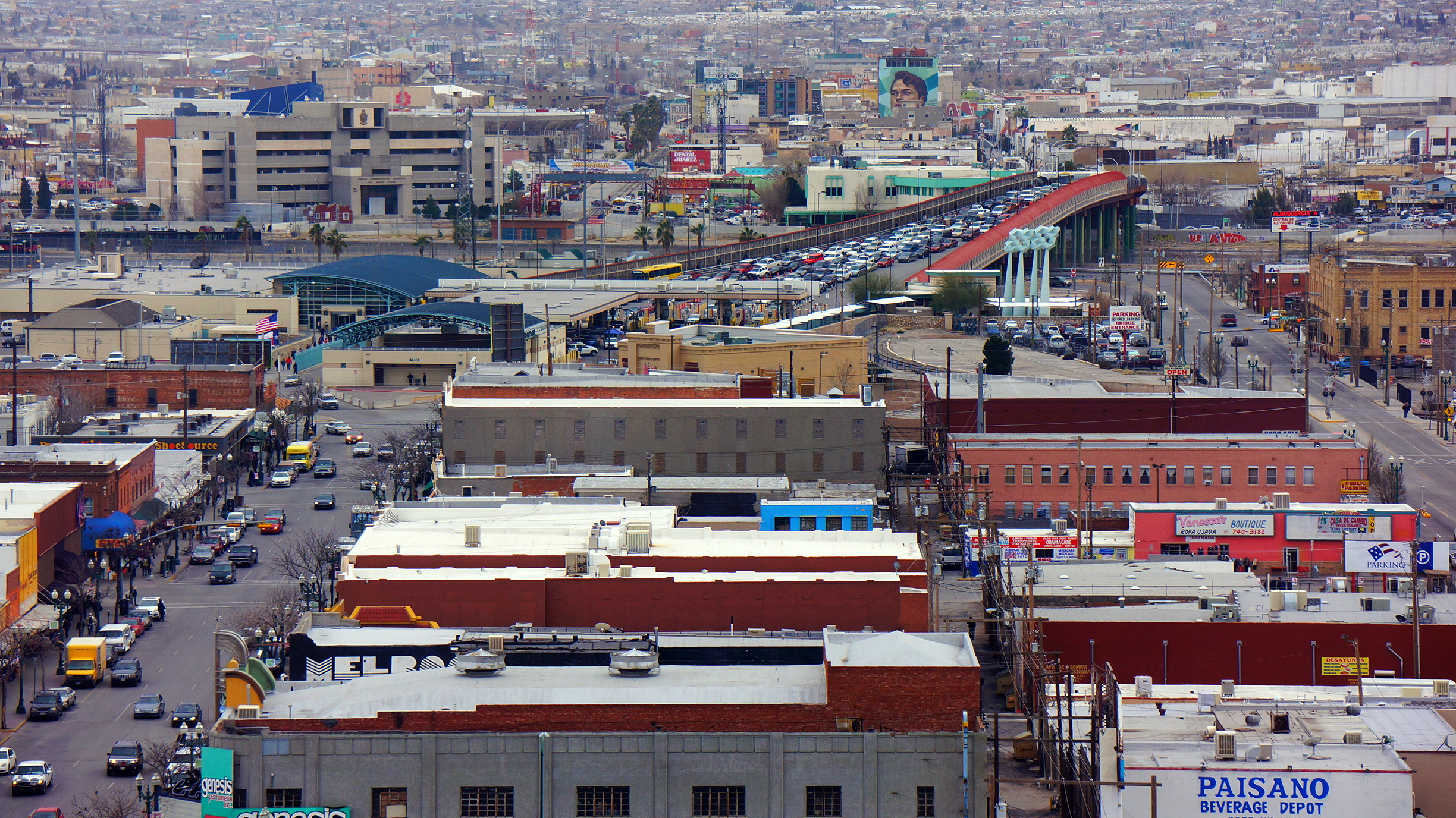
EL PASO, Texas and CIUDAD JUÁREZ, Mexico – When Pope Francis visits Ciudad Juárez on Wednesday, city officials hope that the international attention will change its reputation as the homicidal, lawless capital of Mexican drug violence.![]()
![]()

Five years ago, at the height of the city’s instability, it registered over 3,000 homicides annually. But that was before a renewed push for less corrupt policing, the local victory of the Sinaloa cartel and a retreat by the current Mexican government from a militarized approach to defeating drug cartels.
In 2015, the city recorded just 311 homicides, the lowest murder rate in nearly a decade. Philadelphia, by contrast, with roughly the same population, recorded 277 homicides in 2015.
But it’s not just Juarenses who hope the papal presence can rebrand the city. It’s also El Paso, which lies just across the border, and which is one of the safest cities in the United States, even at the height of the violent battle between the Sinaloa and Juárez cartels. In fact, Beto O’Rourke, who has represented the 16th Congressional district that includes El Paso since 2013, had hoped to work with Mexican officials to use to visit to highlight U.S.-Mexican relations on a far grander scale.
* * * * *
RELATED: An interview with El Paso-area congressman Beto O’Rourke
* * * * *
“There was an attempt that we were part of, short-lived, that was ambitious, to construct at small bridge across the [Rio Grande] to allow the Pope to sort of walk across and put his hand on the border fence,” O’Rourke said in an interview late last month. “I spoke to the diocese, to the bishop. I think that would have done so much to bring home to people how connected our two countries are. It would have been a powerful message.”
Though the plans fell through, O’Rourke will attend this week’s papal mass in Juárez, and he hoped that many El Pasoans will have a chance to see Francis, the first Latin American pope, as he drives along a border that divides one community into two cities that belong to two countries, the Apollonian yin of El Paso counterbalancing the Dionysian yang of Juárez.
In snowy New Hampshire, voters endorsed another view about the U.S.-Mexican border last week when Donald Trump swept to a crushing victory in the Republican presidential primary. When he announced his candidacy for the nomination last June in the lobby of Manhattan’s Trump Tower, the businessman attacked Mexico as an enemy of the United States, a country “killing us economically,” and he painted the vision of a southern border overrun with immigrants “bringing drugs” and “bringing crime,” labeling many would-be migrants as “rapists,” even while conceding that some “are good people.” Continue reading For El Paso-Juárez, Trump’s vision of Mexico based on misconception



